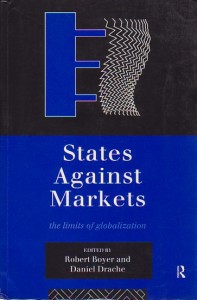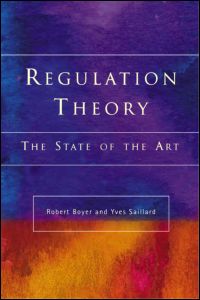dans C. CROUCH, W. STREECK Eds : Les capitalismes en Europe, Coll. Recherches, La Découverte, Paris, 1996, p. 97-138.
en collaboration avec Michel FREYSSENET,
Sociologia del Trabajo, nueva época, Vol. 27, n° 1, 1996, p. 23-54.
dans R. BOYER, D. DRACHE Ed. : States Against Markets : The Limits of Globalization, Routledge, Londres et New York, 1996, p. 84-114.
dans P. COMBEMALE, J.P. PIRIOU Ed., Nouveau Manuel Sciences Économiques et Sociales, La Découverte, Paris, 1995, p.473-504.
(en collaboration avec Yves SAILLARD) (dir.), La Découverte, Paris, 1995.
Nouvelle édition complétée et actualisée (préface et postface), La Découverte, Paris, 2002.
Edition électronique (PDF), La Découverte, Paris, 2010.
En anglais : Regulation Theory : The State of Art (with Yves Saillard), Routledge 2001.
En espagnol: Teoria de la regulacion : estado de los conocimientos, Asociacion « Trabajo y Sociedad », Oficina de Publications del CBC, Universidad de Buenos Aires, 1997 (3 volumes)



